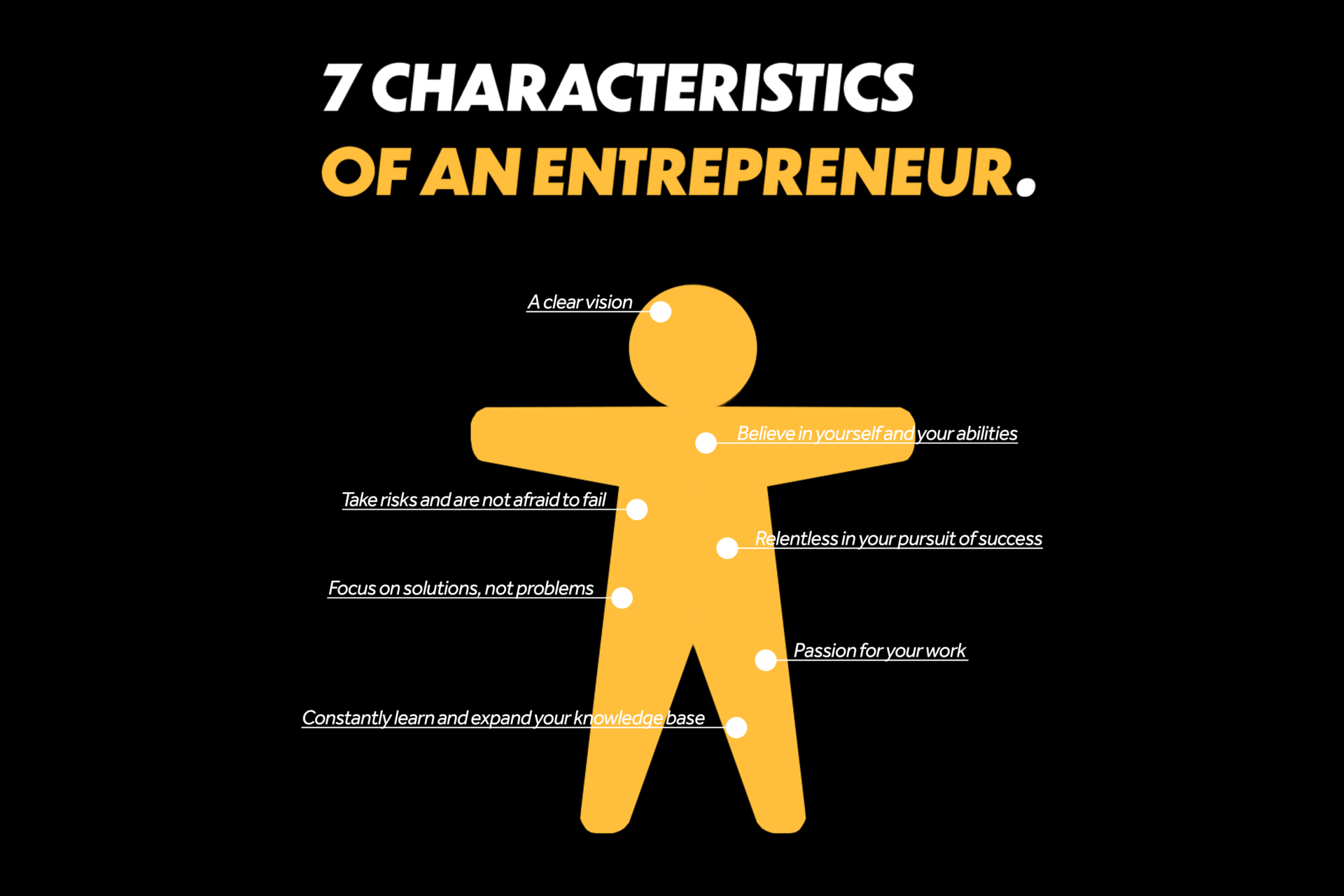Characteristics Of Successful Entrepreneurs

In a world constantly reshaped by innovation and disruption, the entrepreneurial spirit burns brighter than ever. But beyond the headlines of overnight successes, what truly distinguishes those who thrive from those who falter? Identifying the core characteristics of successful entrepreneurs offers valuable insights, not just for aspiring business owners, but for anyone seeking to navigate the complexities of modern life.
This article delves into the key attributes that consistently appear in successful entrepreneurs. It explores the multifaceted nature of entrepreneurial success, drawing on research and analysis to highlight the qualities that separate the innovators from the imitators. It aims to provide a nuanced understanding of what it takes to build a thriving business, moving beyond simplistic notions of luck or inherent talent.
The Unwavering Drive and Passion
At the heart of every successful entrepreneurial journey lies an unyielding passion. This passion serves as the fuel that keeps them going through inevitable challenges and setbacks. According to a study by the Small Business Administration (SBA), entrepreneurs who are deeply passionate about their businesses are significantly more likely to persevere and achieve long-term success.
Elon Musk, the CEO of Tesla and SpaceX, exemplifies this drive. His relentless pursuit of ambitious goals, despite facing numerous obstacles, showcases the power of passion in overcoming adversity. It is also important to note that passion alone is not enough; it needs to be coupled with strategic planning and execution.
Resilience and Adaptability
The entrepreneurial landscape is inherently unpredictable. Therefore, resilience and adaptability are crucial traits for navigating unexpected turns. A report by the World Economic Forum highlights adaptability as one of the key skills needed to thrive in the modern economy.
Entrepreneurs must be able to learn from failures, adjust their strategies, and embrace new opportunities. Sara Blakely, the founder of Spanx, faced countless rejections before finally finding success. Her ability to learn from these rejections and adapt her approach ultimately led to her company's success.
Risk Tolerance and Calculated Decisions
Entrepreneurship inherently involves taking risks. Successful entrepreneurs aren't reckless gamblers. They are calculated risk-takers who carefully weigh the potential rewards against the potential downsides.
A study by Harvard Business Review found that successful entrepreneurs are more likely to take calculated risks after thorough research and analysis. They also possess a strong understanding of their industries and are able to identify opportunities that others might miss.
"The biggest risk is not taking any risk... In a world that's changing really quickly, the only strategy that is guaranteed to fail is not taking risks," - Mark Zuckerberg.
Vision and Strategic Thinking
Successful entrepreneurs have a clear vision for the future. They can articulate their goals and develop strategies to achieve them. This often involves anticipating market trends and identifying unmet needs.
Steve Jobs was renowned for his visionary thinking. He foresaw the potential of personal computers and mobile devices long before they became mainstream. His ability to see the future and create innovative products revolutionized the technology industry.
Effective Communication and Leadership
Building a successful business requires strong communication and leadership skills. Entrepreneurs must be able to inspire and motivate their teams, as well as effectively communicate with investors, customers, and partners.
According to Forbes, strong communication skills are essential for building trust and fostering collaboration within an organization. Leadership is about more than just giving orders; it's about empowering others and creating a culture of innovation and excellence.
Continuous Learning and Self-Improvement
The business world is constantly evolving. Therefore, successful entrepreneurs are lifelong learners who are always seeking to improve their skills and knowledge. This often involves staying abreast of industry trends, attending conferences, and seeking mentorship from experienced professionals.
Bill Gates, despite his immense success, continues to read voraciously and stay informed about the latest developments in technology and philanthropy. This commitment to continuous learning allows him to remain at the forefront of innovation and make a lasting impact on the world.
Conclusion: A Holistic Approach to Success
While these characteristics provide a valuable framework, it's important to recognize that entrepreneurial success is a complex and multifaceted phenomenon. It is not merely the sum of individual traits, but rather a dynamic interplay of skills, experience, and circumstances.
The future of entrepreneurship will likely demand even greater adaptability and resilience in the face of technological disruption and global uncertainty. Cultivating these qualities, along with a strong sense of purpose and a commitment to continuous learning, will be essential for navigating the challenges and seizing the opportunities of tomorrow's business landscape. Entrepreneurs should focus on nurturing their individual strengths while acknowledging their weaknesses, seeking support and collaboration from others to build a well-rounded and sustainable venture.




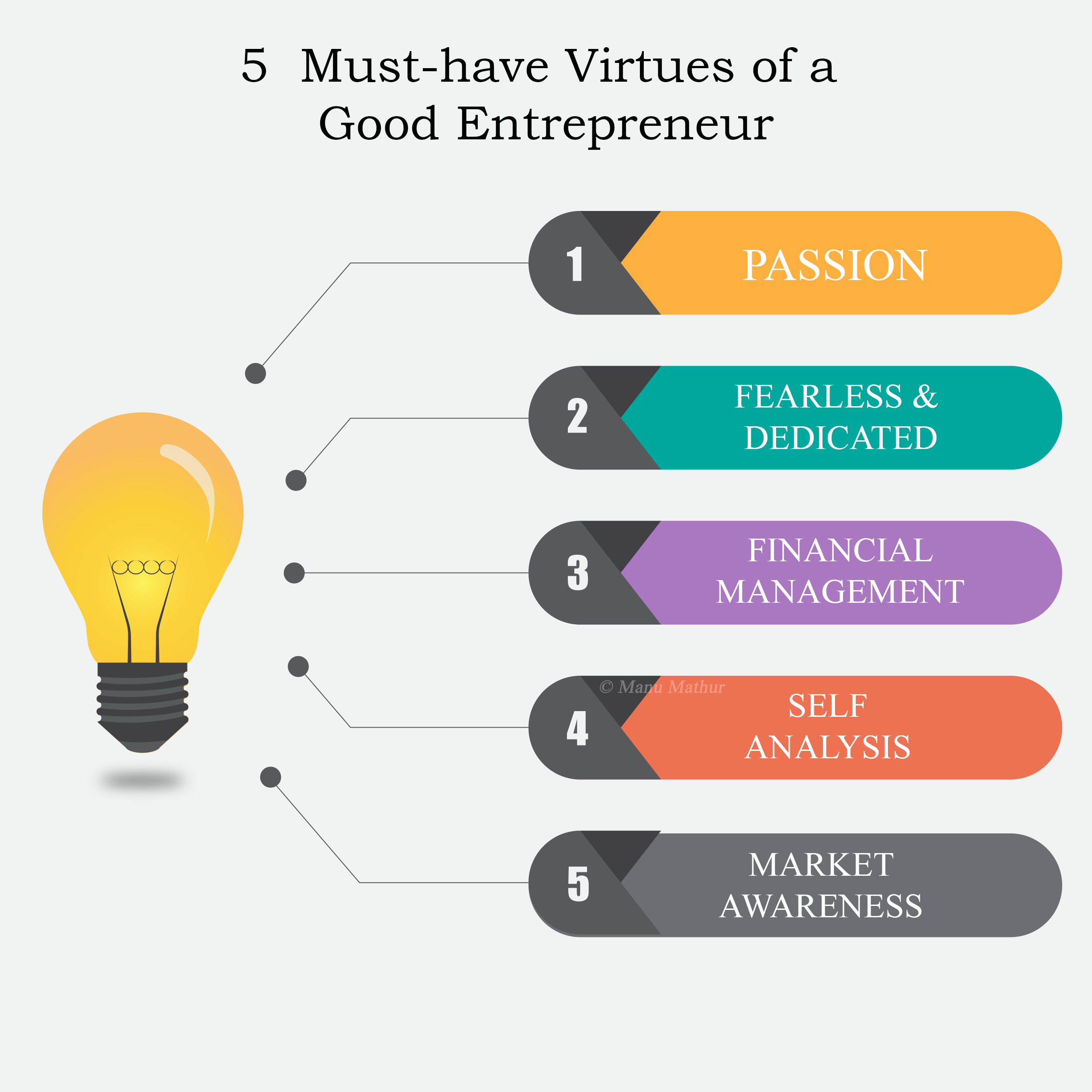

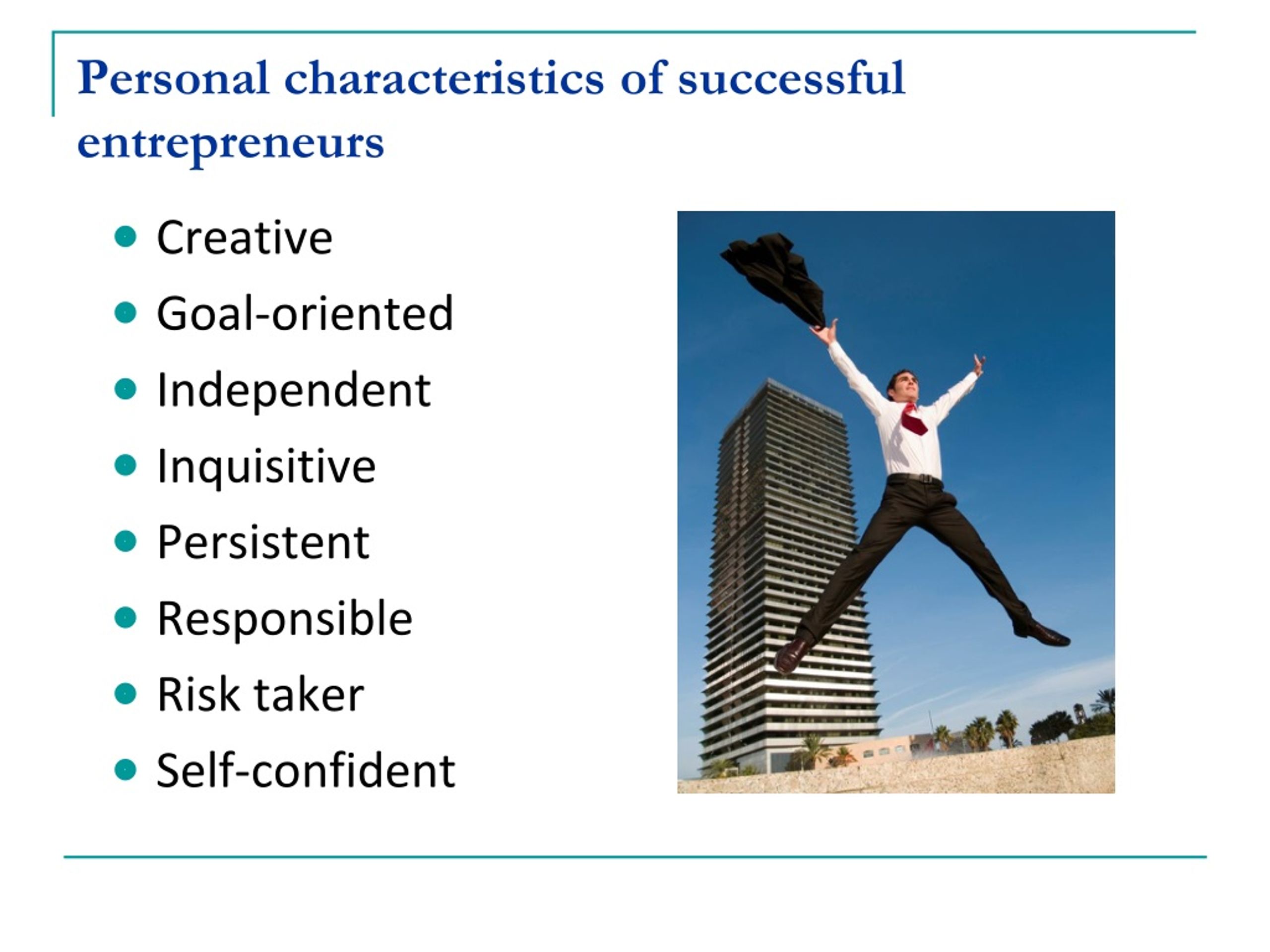

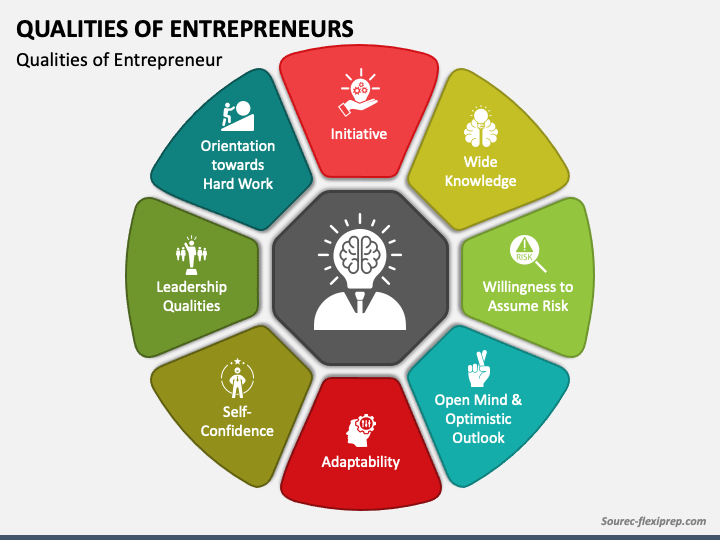

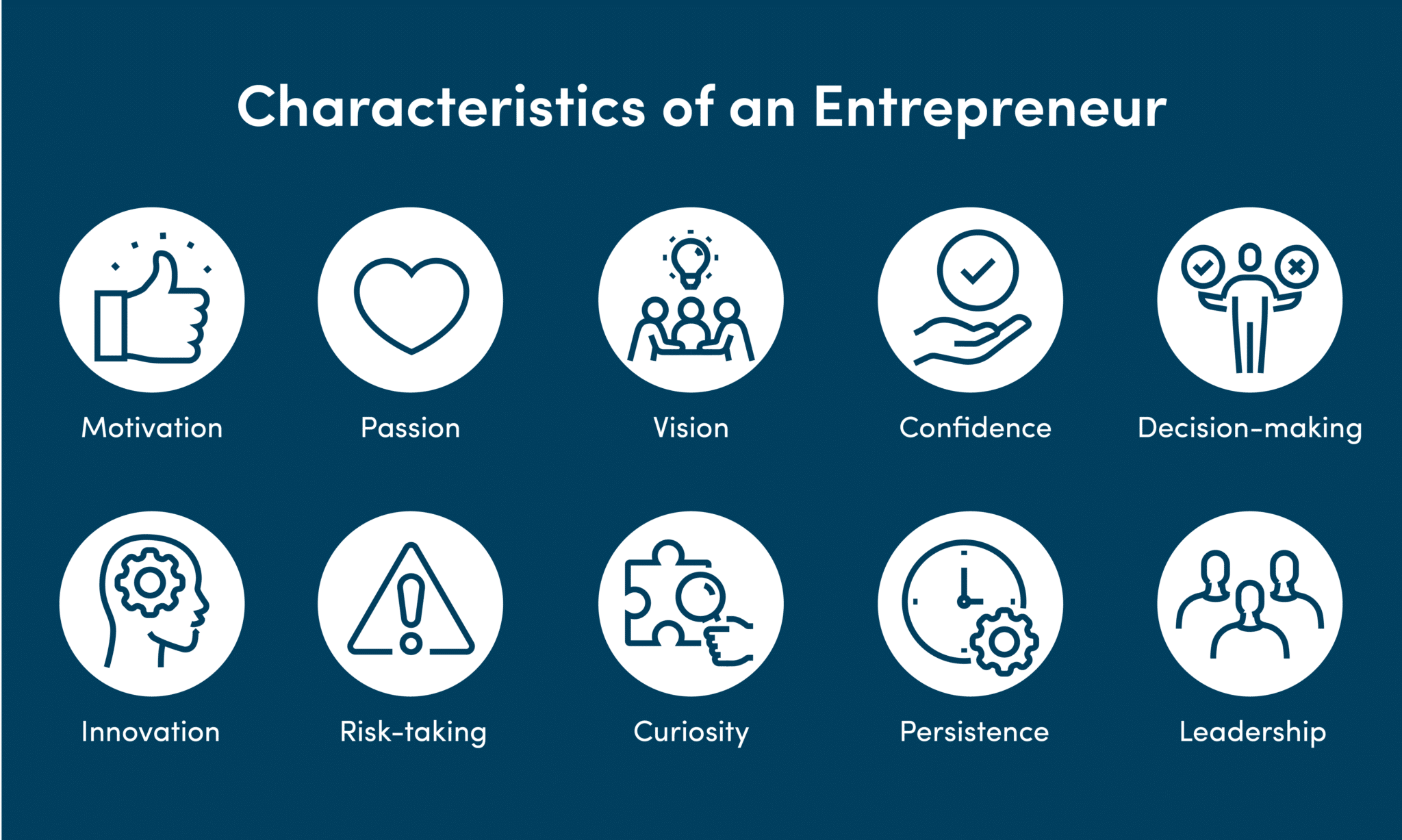


![Characteristics Of Successful Entrepreneurs 5 Key Traits of Successful Entrepreneurs [Infographic] — Ridiculously](https://www.ridiculouslyefficient.com/content/images/content/v1/56ad0eb962cd942d9e46f366/1454986421174-E1EWLGPQGR9HBXX373EU/5-key-traits-of-successful-entrepreneurs_52adc0e5bc53e.jpg)
